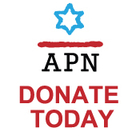Purim is upon us. Most Jews who celebrate Purim remember it as the story of the evil Haman who bribed the buffoonish King Ahaseurus to kill all the Jews in the Persian kingdom as a result of his rivalry with the Jewish courtier Mordecai. The Jews managed to depose Haman, and convinced Ahaseurus to let them fight back and slaughter those who would have stood against them.
 The key to understanding the story is a statement by a fourth century Babylonian rabbi
who lived centuries after the story might have happened, in the place that it was supposed to have
happened—Persia. That rabbi, Rava, added one observance to those listed in the Esther scroll itself
(feasting, exchanging gifts, supporting the poor and reading the story): “A person is obligated to get
drunk on Purim until he cannot tell the difference between ‘blessed is Mordecai’ and ‘cursed is Haman’.”
This is a very specific obligation. There is a specific goal here.
The key to understanding the story is a statement by a fourth century Babylonian rabbi
who lived centuries after the story might have happened, in the place that it was supposed to have
happened—Persia. That rabbi, Rava, added one observance to those listed in the Esther scroll itself
(feasting, exchanging gifts, supporting the poor and reading the story): “A person is obligated to get
drunk on Purim until he cannot tell the difference between ‘blessed is Mordecai’ and ‘cursed is Haman’.”
This is a very specific obligation. There is a specific goal here.
Significantly, Rava’s statement in the Babylonian Talmud is attached to a story of a Rabbinic murder:
Rabbah and Rabbi Zeira
made a Purim feast together.
They got drunk, Rabbah rose
and slaughtered Rabbi Zeira.
On the morrow,
when the wine had left him,
Rabbah asked for mercy
on Rabbi Zeira, and [God] revived him.
A year later,
Rabbah said to Rabbi Zeira,
“The gentleman should come
and we will do the Purim feast together.”
Rabbi Zeira said to Rabbah,
“Not in every hour
does a miracle happen.”
Aside from proving that rabbis are not fools (“not in every hour does a miracle happen”), this story points to the dark heart of Rava’s understanding of Purim. The fact that the Jews fought back and slaughtered the Persians was not a “happy ever after” ending to the story. It was but a pause in the cycle of violence that was enabled by the continuing reign of King Ahaseurus who gave power to the faction with the greatest sway and the most money. Under Ahaseurus’ reign (which is our unredeemed world) there is no final act of violence which brings peace. As the great Rabbi Aharon Shmuel Tameres wrote in the early twentieth century: “Even if in the present moment it was to defend themselves from the evil ones, however, by [the use of violence,] violence spreads in the world...”
On Purim, 22 years ago in 1994, a Jewish doctor, charged with healing, walked into the mosque at the Tomb of the Patriarchs, slaughtered 29 innocent, defenseless Palestinians at prayer and injured more than 120 others. He used his army-issued submachine gun and only stopped shooting when the gun jammed. This abomination was an exception only in its body count and cold hearted brutality. Most (though hardly all) of the quotidian violence of the occupation does not result from this level of criminal savagery. Most (though hardly all) of the victims of the occupation are not murdered. The ongoing abuses of the occupation take the form of humiliations, deprivation of travel, theft of land, imprisonment, and yes, killing by soldiers, and murder by civilians.
The murder and mayhem is, as anyone who reads the news knows, not onesided, and there is no monopoly on brutality. However, the occupation is singular in its bureaucratic ability to deploy violence banally, in an offhanded manner, as part of the orders of the day: the violence of home demolitions, land appropriations, denial of access to medical care, tear gas, and use of excessive force at demonstrations. Sadly, the necessary defensive violence of the Six Day War has, as Rabbi Tameres predicted over a century ago, turned into the violence of oppression, and occupation.
The only way out is to stop supporting the occupation. To stop supporting those institutions who provide the Israeli government with the means to continue the occupation. To demand that the mainstream American Jewish institutions remove funding from all parts of the occupation: from direct and indirect support of settlements, to support for tours that bring Americans to show solidarity with the settlements, to support for delegations to Israel that are used as propaganda for the ongoing project of the occupation and settlement.
Instead, we must support those who are fighting the occupation. Who are fighting against the expansion of settlements and for the dismantling of the settlement project. We must support those like Americans for Peace Now and its Israeli sister organization, Peace Now (Shalom Achshav), who are working to stop the violence of the occupation. Not because it destroys any chance of an Israeli democracy—though it does that. Not because it undermines the essential Jewish values which should undergird the State of Israel— though it does that, too. Rather, because it propagates evil, injustice, and violence on a daily basis in obvious and hidden ways. Unless we do all we can to stop the occupation we will never be able to say, “Our hands have not spilt this blood.”
Your tax deductible contribution to Americans for Peace Now helps support Peace Now’s essential programs.
L’shalom,
Rabbi Aryeh Cohen
Rabbi Aryeh Cohen, PhD, is Professor of Rabbinic Literature at the Ziegler School of Rabbinic Studies at the American Jewish University. His latest book is Justice in the City: An Argument from the Sources of Rabbinic Judaism.